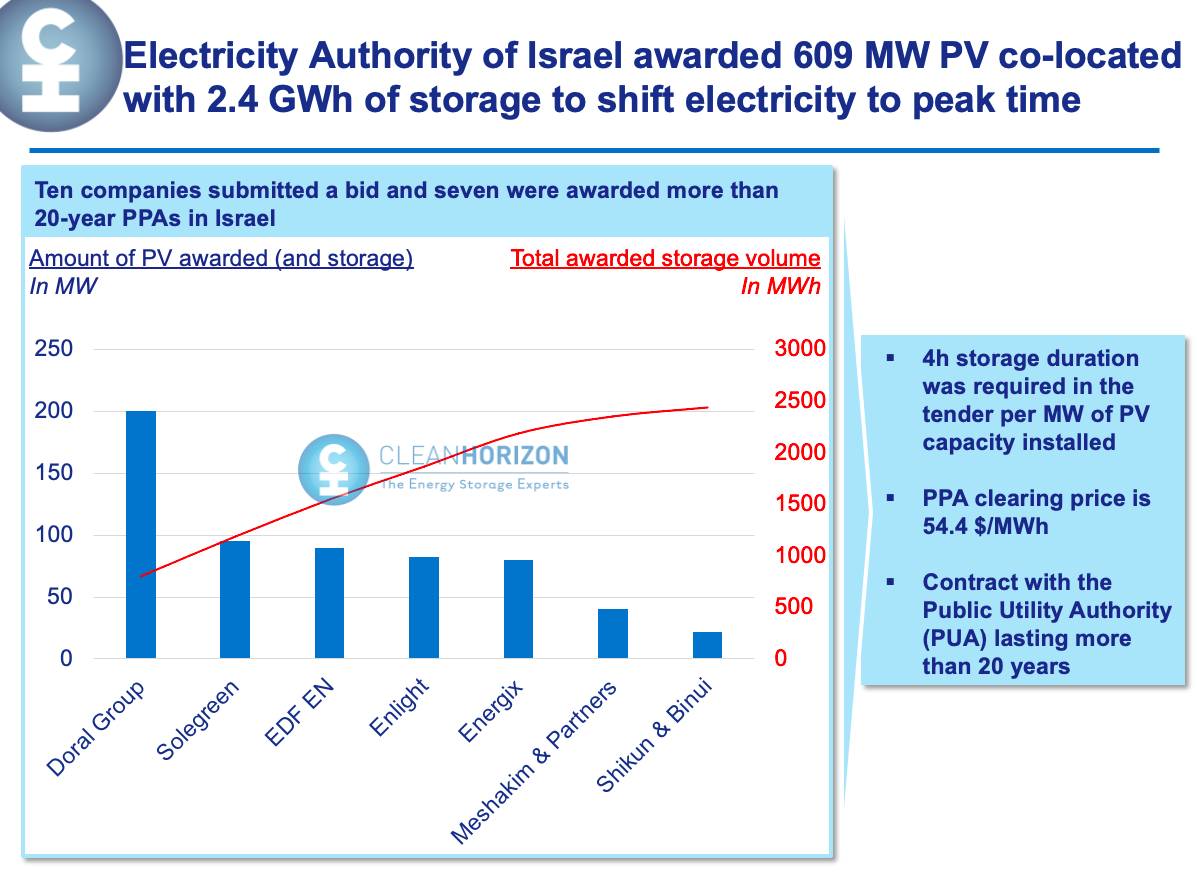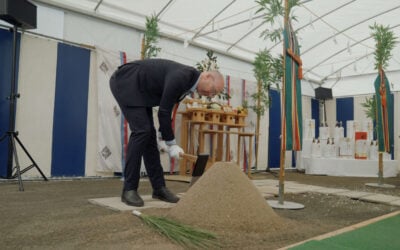
An auction for solar-plus-storage held in Israel by the country’s Electricity Authority (PUA) awarded 609MW of solar PV alongside 2.4GWh of energy storage.
The tender process concluded shortly before the end of 2020, awarding distribution grid-connected solar capacity paired with four hour duration energy storage at a clearing price of 17.45 Shekel cents per kilowatt-hour (US$0.0544/kWh). A total of 55 bids were received, from 10 companies, totalling 870MW of solar capacity – of which 33 bids from seven companies were accepted, totalling 608.95MW of solar energy and more than 2,400MWh of storage.
Enjoy 12 months of exclusive analysis
- Regular insight and analysis of the industry’s biggest developments
- In-depth interviews with the industry’s leading figures
- Annual digital subscription to the PV Tech Power journal
- Discounts on Solar Media’s portfolio of events, in-person and virtual
The Green Energy Association of Israel sent Energy-Storage.news an English language press release (the PUA website has only listed in Hebrew thus far), noting that the PUA was able to carry on with the auction process despite disruption from the coronavirus pandemic. The auction followed a previous tender held in the summer months of 2020 for distribution-connected solar-plus-storage.
While the first tender saw 168MW of solar and 672MWh put Israel “on the map”, Michael Salomon, CEO at consultancy Clean Horizon told Energy-Storage.news today, the massive award in the more recent auction puts Israel on trajectory to surpass the 2GW / 8GWh of energy storage it needs by 2030 to support a goal of sourcing 30% of its electricity from renewabled by 2030, requiring the deployment of 12GW of solar.
In a webinar hosted last November by this site together with Clean Horizon, head of PUA’s regulatory department Yossi Sokoler said that the 8GWh figure was not a deployment target as such, but the amount of storage that PUA had modelled as being necessary to support the renewable energy target.
Winning projects will have to be built within two-and-a-half years and asset owners or developers will receive remuneration through government-backed power purchase agreements (PPAs). The Green Energy Association of Israel said that the energy storage capacity will allow solar projects to maximise the potential for generation despite limited available grid connection capacity.
The storage will also help solar be used to meet the evening peak demand times for electricity. While not yet being configured to provide grid services such as frequency regulation as has been the case in other countries, the Association said they will be expected to be able to do so in future.
“With an estimated need of 8GWh for the whole country by 2030, it is striking to see that Israel’s latest auction just brougt to market over 2.4GWh of storage – to be deployed with long-term PPAs in the next 1 to 3 years,” Clean Horizon’s Michael Salomon said.
The latest result, combined with the ongoing procurement for a 300MW solar-plus-storage project in the Negev Desert near the city of Dimona and added to the results of the previous auction pushes the “total energy storage to be deployed in the country to about 3.3GWh in the coming years,” Salomon said.
“The results of the next auctions to be launched during 2021 will be quite interesting to watch,” Salomon said, adding that Israel “may very soon” reach its 8GWh requirement for 2030.
Watch the November Energy-Storage.news / Clean Horizon webinar ‘Israel’s electricity revolution’, with PUA’s Yossi Sokoler, Green Energy Association of Israel head Eitan Parnass and Clean Horizon CEO Michael Salomon on our Youtube Channel here.






